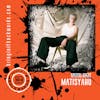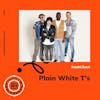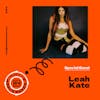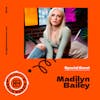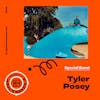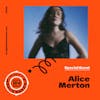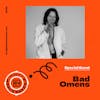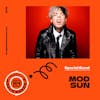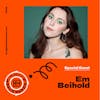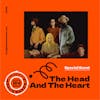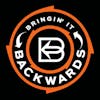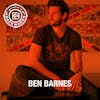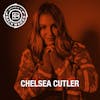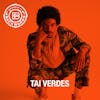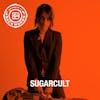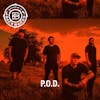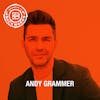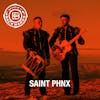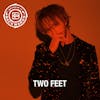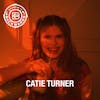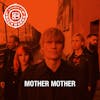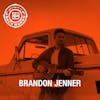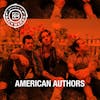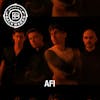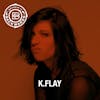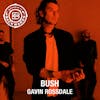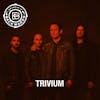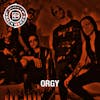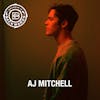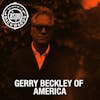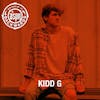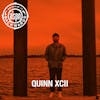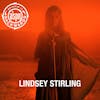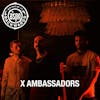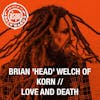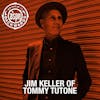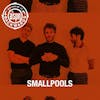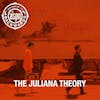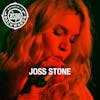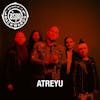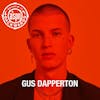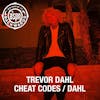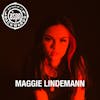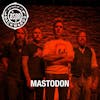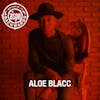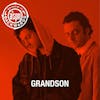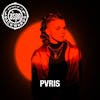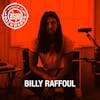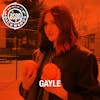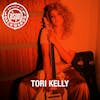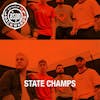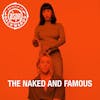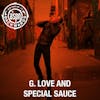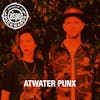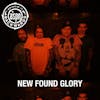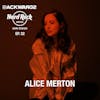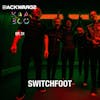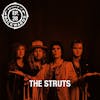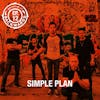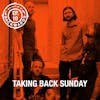Interview with Mallrat
We had the pleasure of interviewing Mallrat over Zoom video.
Mallrat's prized pop songwriting has become a beacon the Australian music industry will eagerly follow, and on her debut album Butterfly Blue, she embodies the spirit of its titular...
We had the pleasure of interviewing Mallrat over Zoom video.
Mallrat's prized pop songwriting has become a beacon the Australian music industry will eagerly follow, and on her debut album Butterfly Blue, she embodies the spirit of its titular creature – but without the delicacy that keeps you at a distance. Over a dozen clever and open-hearted tracks, Mallrat – aka Grace Shaw – draws you in close and shows you the world through her wide, hopeful eyes.
On Butterfly Blue, a lifetime of collecting influences across genres – from folk, country, and Florence + The Machine to the moody noir pop of Lana Del Rey and Azealia Banks' bold and charismatic hip-hop – come together into one vast and tender debut, a compilation of Shaw's emotions as eclectic and cohesive as those soundtracks she pored over.
With combined streams topping 300 million, her trio of early EPs – Uninvited (2016), In The Sky (2018), Driving Music (2019) – are documents of an artist on the rise. In the process of making them, Shaw swapped the Brisbane suburbs for Los Angeles and toured both at home and internationally, including European and North American supports for Maggie Rogers and King Princess, selling out headline shows from London to New York, and collecting fans in the likes of Mark Ronson on the way.
Butterfly Blue solidifies Mallrat's reputation as a master of clever, timeless pop. Sweeping across vast, airy production is often surprising samples and sounds tucked under the surface: chopped-up Gangsta Pat bars, a flipped recording of a children's choir performing Lisztomania. Distorted effects were recorded from discarded children's toys – a sonic gift from Clams Casino's producer. Layered, like an instrument all their own, are her signature breathy vocals, more assured than ever, worthy of the same attention and fixation she once applied to Imogen Heap's.
Mallrat's journey to become the artist capable of making such an accomplished record has been a fascinating one – to watch and experience. Describing the metamorphosis of her favorite insect, she explains breathlessly: "The transformation they undergo is almost incomprehensible. They dissolve into goo and then reconstruct themselves – but hold onto the memories of their time as a caterpillar."
She could just as easily be describing the next phase for Australia's rising pop princess as she prepares to unfurl her wings and show you how she's grown.
We want to hear from you! Please email Tera@BringinitBackwards.com.
www.BringinitBackwards.com
#podcast #interview #bringinbackpod #Mallrat #ButterflyBlue #NewMusic #zoom
Listen & Subscribe to BiB
https://www.bringinitbackwards.com/follow/
Follow our podcast on Instagram and Twitter!
https://www.facebook.com/groups/bringinbackpod
We'd love to see you join our BiB Facebook Group.
Hello, what is going on? It is Adam. Welcome back to bringing it backwards. A podcast where both legendary and rising artists tell their own personal stories of how they achieved stardom. On this episode, we had a chance to hang out with mallrat over zoom video mallrat was born and raised in Brisbane and Australia, and she talks about how she got into music. She didn't begin writing music until she was in high school. She talked about getting garage band writing songs around year 11, throwing her songs up onto SoundCloud and uploading them as well to triple J's website, where people who worked for triple J will actually listen to the songs. 3 (1m 54s): And if they're good, they'll put them either on triple J's online radio station. And if they get a lot of play, a lot of buzz, then they'll move up to the treasury will signal. She talked about how a few of her songs did really, really well on hype machine. The major success of her second EAP called in the sky, her song groceries, which was massive. That's what really broke her here in the United States. All about her favorite song. She has written a song called Charlie, which was also doing really, really well right prior to the pandemic and all about her brand new record, which is called butterfly blue. You can watch our interview with mallrat on our Facebook page and YouTube channel app bring in a backwards. 3 (2m 38s): It would be so awesome if you subscribe to our channel like us on Facebook and follow us on Instagram, Twitter, and tick-tock at bringing back pod. And if you're listening to this on Spotify, apple music, Google podcasts, it'd be awesome. If you follow us there as well and hook us up with a five-star review, 4 (2m 55s): We'd appreciate your support. If you follow and subscribe to our podcasts, wherever you listen to podcasts, 3 (3m 1s): We're bringing it backwards with mallrat. Hi, how are you? 5 (3m 7s): Good. How are you? 3 (3m 8s): I'm doing well. Thank you so much for doing this. 5 (3m 11s): My pleasure. Sorry about the delay. 3 (3m 13s): Oh, it's all good. I appreciate just being able to chat with you. 5 (3m 18s): Thank you. Yeah, 3 (3m 20s): It's going well. It's just, just got started kind of. It's only a 10 here where whereabouts are you? 5 (3m 26s): We are on tour at the moment. And today we are in Vienna in Austria. 3 (3m 33s): Oh, wow. So what time is it in Austria? 5 (3m 35s): It is 5:00 PM. 3 (3m 37s): Okay. So not, not a horrible time slot then 5 (3m 40s): It's not too bad. 3 (3m 42s): Okay, perfect. Well, my name is Adam and this podcast is about you and your journey in music. And we'll talk about the new record, which are the new album, which is fantastic. I've been listening to it all weekend. Yes. I really love, I have the track listing here. I'm bad with numbers. Guitar. Heart is my favorite song in the album. 5 (4m 2s): Thank you. 3 (4m 3s): And arm's length is so good too. I mean, all of them are great, but those are the two like that really stood out to me. 5 (4m 9s): Thank you so much. I appreciate that. 3 (4m 11s): Of course. So first off, I guess, just talk to me about where were you born and raised? 5 (4m 16s): So I am from Brisbane, Australia, and lately I've been living in Melbourne Australia. 3 (4m 24s): How far is Melvin from, from, from Brisbane? Is it? Cause I know Australia is like, you're you're if you're touring there, you're playing like four cities and it's you're flying, right? 5 (4m 33s): Yes, exactly. So you would fly to Melbourne and it's like a two hour flight, I think. 3 (4m 38s): Yeah, not horrible, but not super close. 5 (4m 42s): No, but kind of the same distance from everything else in Australia. Brisbane is really nice. It's it's the capital city of Queensland, which is a really warm tropical place and it's a really like safe, nice place to grow up. Yeah. 3 (5m 2s): Is there a big music scene there? 5 (5m 4s): That is a pretty good Indian music scene. There are bands like Cub sport, violent Soho. 3 (5m 14s): I've heard that name in a while. Pretty 5 (5m 16s): Two bands from Brisbane. 3 (5m 19s): Very cool. And how did you get into music? 5 (5m 22s): I got into music kind of online. Yeah. Like, yeah. I started making beats on garage band. That's where it started. Then I started singing over those beats and then I started reaching out to other producers to collaborate with and try and like get anyone to notice that I made music. Cause I didn't know anyone in real life that did that. So I made a lot of friends on like SoundCloud and Facebook and stuff and yeah, that's how I got started. 3 (5m 56s): Wow. So you started, you didn't play piano or anything like that at growing up. Didn't take any lessons of that sore? 5 (6m 2s): Not very well at all. 3 (6m 4s): But you, did you get thrown in it at any point in time? 5 (6m 8s): I did quiet as at school and we had a piano for a few years when I was little. So I could, like, I taught myself the basics and would like learn to play a few things by ear, but like not anything crazy. 3 (6m 21s): Okay. And was anyone in your family and musician or musical at all? 5 (6m 26s): No. 3 (6m 28s): Whose piano was it that it just happened to be there? 5 (6m 33s): Well, I think we got it second hand at some point. I don't remember how it, how we ended up, 3 (6m 41s): But it was there and you decided to tinker around with it. I love that. 5 (6m 45s): Yeah. 3 (6m 46s): What drew you to trying to create beats on garage band? 5 (6m 50s): I, when I thought I wanted to be a DJ so fast, I learned how to DJ actually before I started making beats and I would DJ everyone in, well, not everyone in Brisbane, but a lot of people in Brisbane, like eighteenths days and they like year 12 parties for like $50. Wow. Yeah, it was pretty cool. So I did that and then I got more into making beats and then that's when the brush progression started. Cause I thought I knew I wanted to tour and I thought initially I thought I wanted to be a DJ. 3 (7m 30s): Okay. And what are you just playing records or like how did you, you were just come up with playlists? Like how did you even start deejaying? 5 (7m 38s): I downloaded a software on my computer. I forget what it's called, but it was just one literally or in the computer. And then for Christmas one year dad got me like a little mini mixer. It was so cute. So yeah. And I would just download all the songs that I liked and try and find cool ways to play them. 3 (8m 3s): That's awesome. What was the first part of you DJ? 5 (8m 8s): Some random 18th, nothing, nothing. 3 (8m 11s): And a friend where you like, Hey, like I can, I can DJ, I got a, 5 (8m 14s): It was a friend of a friend that went to a different school. 3 (8m 18s): Was it nerve wracking at all to kind of do that and put yourself out there like that? 5 (8m 22s): I think I was just like I'm cooler than all these people. Like either. It was like some, yeah, like some friend of a friend that went to different schools. So I was, I was not too worried. 3 (8m 34s): It wasn't too big of a deal. Okay. That's cool. And then you decided to start due to that you, you got in involved or wanting to start writing your own beats? 5 (8m 44s): I think it's more that I just figured out. Yeah. I dunno. I think I realized like I wanted to have more involvement in the actual music than just 3 (8m 56s): Okay. And so were you always a writer though? I mean, your lyrics are incredible. That was what really drew me to the arms length song. 5 (9m 4s): Thank you. No, like I had always been good with words and read a lot and just enjoyed writing, but I'd never thought about writing or poems or even, 3 (9m 20s): Oh really? So you didn't do any, when did you start doing that? Was it just something that you're like, I want to, you know, I have these beats that I like, I want to start writing lyrics to it. 5 (9m 30s): Yeah. When I was 16 and I just kind of gave it a go with no, no idea what I was doing. 3 (9m 37s): And then you had built a community on SoundCloud or online at this point or that's when you started, 5 (9m 42s): I would call it a community, but I had added a few people on Facebook. Yeah. 3 (9m 49s): And from there, like what was the, where you, like, how did you kind of build your, your career build? 5 (9m 56s): I forgot to mention, we also have this thing called triple J on earth. 3 (9m 59s): Oh yes. Okay. 5 (10m 0s): So that's like related to triple J, but it's the music discovery platform that's connected to triple J. And so I also uploaded my first song, suicide blond to triple J on earth and SoundCloud. And then it kind of took off from there. 3 (10m 16s): Oh, interesting. So you can upload anything to, to triple Jace unearth and they'll put it up there or does it have to get through like a, is there like a gatekeeper process 5 (10m 26s): You just have to be from Australia or New Zealand and they'll list. The curators will listen to every song that's uploaded and they have a digital radio platform, which is triple J on earth. And then triple J will cherry pick music from unearthed to play on national radio as well. 3 (10m 43s): That's incredible. That's such a cool thing that they have there. I mean, I was in radio for a long, long time. That's actually how I found out about you. We were playing groceries on the radio station I worked for quite often. And it's, it's cool that you, that people can actually do that, like upload a song and then in hopes that it'll get picked up by this big station there. 5 (11m 5s): Yeah. It's really cool that we have it. Yeah. It's a pretty amazing initiative 3 (11m 12s): For sure. For sure. Not. I mean, here in the states, it's not a big, I mean, it's a big thing to get on the radio, but the, the, the gatekeeper process is so there's so many people you have to kind of get through, you might get on like a local show on, on your local station. But other than that, I mean, it's really hard to get through that. So it started doing what well suicide blond did well online and then it ended up going on to triple J. 5 (11m 37s): So that one didn't end up going onto triple J nothing from my first EPA did, but there was like a fair bit of hype. Remember when hype machine was a big thing like around that time and just blogs, I guess. 3 (11m 55s): But 5 (11m 57s): Yeah, I had a couple of songs, at least one song was number one on hot machine though. What? Which is crazy. Yeah. 3 (12m 7s): One going number one and a height machine. I mean, this isn't too long ago, but I'd say 75 years ago that would like, you know, be a game changer for someone. 5 (12m 17s): Yeah. It was, it was pretty crazy. And yeah, it was just more of an online kind of buzz for a little while. And then my second DP started to get played on triple J. 3 (12m 30s): And that was with the, in the sky? 5 (12m 32s): Yes. 3 (12m 33s): Okay. And then, so what would you say, like going from the uninvited EAP, that was something you put together, what in high school, is that what I read? 5 (12m 40s): Yeah, so that was grade 12 and then the first year out of high school was when I was working on that. And that was just me singing on beats, that different producers that I'd added on Facebook and SoundCloud beats that they'd sent me, I would record. And I would go to this. I don't know if you have it in America, you know, Kennedy's storage centers. It's like this big warehouse with just with storage books, isn't it? 3 (13m 8s): No, we have to like storage places that you can dump your stuff in there. 5 (13m 13s): This friend of a friend had a studio in a storage box. And so I would go there after school. I would catch the train out. So like, this is a really far away suburban go to the storage box and record with him there. And then the first year out of school, when I was like working random jobs and stuff after work, I would catch the train out to that storage box. And yeah, that's how I recorded the first AP. 3 (13m 41s): Really? You recorded it in the storage box. That's incredible with that. Like when you finished school, was that always the idea of you're like, okay, I'm, I'm going to make this music thing work. 5 (13m 53s): Yeah. Yeah. I was very passionate about that. 3 (13m 57s): And to have probably, I mean, to get the validation that it's, it is doing well by putting what you said, it was your first song that you've uploaded, that went on to do pretty well, at least in the blog world and on triple J. 5 (14m 11s): Yeah. Well, it's certainly got conversations started and it was just cool to be like, to have other musicians or producers or something, hear my music and be like, Hey, keep it up. Good work. You know, when you don't know anyone that does that, it's, it means a lot. 3 (14m 29s): And then going into the next album in the sky or EAP in the sky, was that something that you were still contacting other producers and getting beats salary or did you begin writing your own like instrumental at that point? Yeah. 5 (14m 42s): Yeah, by that point, I'd started to make friends with a few more people in real life that did music. So golden vessel was a big character in that he's max my really good friend from Brisbane. And we met in the process of working on music for in the sky. And also my friend Connie. He was another one that I worked with a lot on that. And they were so great because as well as, you know, being such a pleasure to work with, they were really supportive in my wanting to be a producer myself. And they would always answer all my questions and walk me through stuff they were doing that I didn't understand in the process of making in the sky. 5 (15m 28s): I became a lot more involved as a producer, as well as a writer. 3 (15m 32s): Okay. And when you started seeing success within the sky and having, was that the record that you started getting number ones on hype machine or was that even previous 5 (15m 40s): To that? 3 (15m 41s): Even on an uninvited, 5 (15m 42s): Mostly uninvited. That was a someone that, for real, that I remember doing quite well. 3 (15m 47s): Okay. And, and when that happened, are people reaching out to you at this point, like record labels or, you know, people in the industry saying, Hey, like what do you have going on 5 (15m 55s): The day I uploaded the first song. I was getting like emails from people, which was crazy, but also an email doesn't mean that much, but it was just very crazy to be, you know, noticed by people that did music as their job. Cause I was, I was in high school checking my email, looking out of my school, email, looking into my personal email and then being like, hi, this is blah, blah, blah. From Atlantic or blah, blah, blah. I was like, what the hell? 3 (16m 26s): That's crazy. 5 (16m 27s): Yeah. It was very weird. Cool. Was very fun. 3 (16m 31s): Were you able to share that like with your friends and say, Hey, like, oh my gosh, like I'm getting emails from these major record labels that want to make, 5 (16m 38s): I don't think they understood. I think they're like, yeah. Okay, cool. Whatever, like, it doesn't really compute what that actually means. It's quite an abstract thing to say to a 16 year old know. 3 (16m 56s): When did you start performing? Like were like on that first record, where you going out and playing these songs or was it later? 5 (17m 3s): Yeah, it was just after I finished high school, we started doing our first shows and my first shows were supporting all day. Who was one of the reasons I started making music. 3 (17m 16s): Oh, okay. That rapper he's a rapper. A rapper. Yeah. Okay. I know the name, 5 (17m 22s): So yeah. 3 (17m 23s): Did you, how did you make that relationship? 5 (17m 26s): So, well, when I went to his concert was when I was like, oh my God, I want to be a DJ. I want it to, 3 (17m 34s): So he was really the inspiration for it. 5 (17m 36s): Yeah. He's my life. And then, so when I was like, okay, I want to do something with this guy. Like, this is so cool. Then a lot of the people that I was like reaching out to, to make beats and stuff, kind of like connected in the spider web of like his album credits, you know? 3 (17m 56s): Oh, so you were, were you going in there and like looking at the liner notes and saying like, oh, okay, this is this person I should reach out to this person. Brilliant. 5 (18m 5s): And then he was just so lovely and supportive and then his manager ended up also managing me. 3 (18m 13s): Wow. That's huge. 5 (18m 15s): Yeah. It was crazy. And he said, Jim, we love Jim. 3 (18m 19s): Wow. So you get on this tour and you were what like right at, right out of high school? 5 (18m 24s): 17. 3 (18m 26s): Oh my gosh. And how many dates did you do? 5 (18m 28s): It was just two shows going on to tour together again later. 3 (18m 34s): Okay. So from those shows, then you put out in the sky and what would you say changed from that album aside from getting probably triple J like actually playing the record and so forth. 5 (18m 45s): I think that was the significant thing I like, you know, besides growing as a producer and figuring out how to actually operate in a studio environment and how to use Ableton. I think getting that radio support was pivotal and opened up a whole new audience and opened up festival slots and things like that. 3 (19m 10s): Is that what cause obviously on that record, that's where I heard you for the first time was with groceries and the radio station. I worked out, we I'd play your song every night, a bunch of times. And it was like, you know, I'd obviously been working years prior to that, but like once that flood gate opens with triple J, is that when you started getting the airplane in the United States and how, what was that like? 5 (19m 32s): Yeah. I don't think I can even expand on it any more than that, you know, that of like it happened with that and it was amazing and yeah, reached a whole new audience. And, 3 (19m 46s): And you were coming out here at that point, like, was that the first time you had ever been out here or was it like coming out here? 5 (19m 51s): I'm trying to remember the best. I think the first time I went was definitely around them, but I can't remember the exact details. 3 (20m 1s): Okay. And after that, you know, success starts going with, with groceries and then you was, what would you say, like the next kind of milestone for you was outside of that? Or after that? 5 (20m 14s): I think just being able to do my own tours and understand, you know, what the people that looked listened to my music looked like and who they were and that they cared. That was, that was an amazing experience. Being able to play festivals, like kind of the biggest Raelian and festivals and have that experience of festival touring was the next kind of highlight reel, 3 (20m 40s): Like 5 (20m 41s): Splenda and fulls festival. That was ungrieved in the movie. Like they were very, very exciting experiences at the time. 3 (20m 49s): Yeah. Well, your career is like really, you know, I mean, not that it's done anything different, but it was like really accelerating, right. I mean, 2018 with groceries and then you put out Charlie and it's just going up and up and up and then COVID hits, like, how did that kind of affect you? I mean, aside from directly being stuck inside for a while, but I mean, do you feel like that kind of pulled some momentum away from you or are you like devastated in that way? 5 (21m 11s): It was like, you know, it was frustrating because I had just gotten success of my favorite song that I'd ever made. Charlie and I wasn't able to use the momentum from that song doing welt tour and yeah, definitely lost momentum. And also I was living in America at the time and I had to come back, but you know, all things considered, like it was not terrible. It was very frustrating to be so excited about this tour that I was like almost sold out that I was just announced that I couldn't actually play the shows for. 5 (21m 55s): And like, that was quite heartbreaking, but I still feel like things could have been much worse. And I think it would've been a really terrible time to be a new, new, new artists. Like just someone that had just put out like one or two songs and you losing momentum in that situation could be really devastating 3 (22m 16s): And full of bands that way, which is, I felt so bad for it, but like, you'll see them coming around now, like, yeah, like they'd have a hit and it's like, ah, and then, you know, rug pulled out. 5 (22m 28s): Yeah. Terrible timing. But yeah, things could have definitely been worse and I had the time to fine tune my album and finish it off. And just, yeah, 3 (22m 40s): I was going to ask you about that. Were you already working on the album before COVID hit? So some of our songs songs from like 2019, 5 (22m 48s): Well, the oldest song is obsessed and I think obsessed could have even been 2018. Maybe I've been chipping away at it for a really long time. It was like a long slow process and yeah, I'm glad I didn't have to rush it there. 3 (23m 8s): Sure. Well, I'm curious real quick. You said Charlie was the year, you know, the, your favorite song you ever wrote. W w why would you say that? Like, like, can you tell me a little bit more about that? 5 (23m 20s): I think the lyrics are incredible and it was really cool that a song that I felt so connected to and proud of was so well received. Like in Australia, we have the hottest 100 and was a really big deal. And Charlie got number three in the 100, it was like a Billie Eilish song and then a flume song. And then Charlie, and that was a huge moment for me. Yeah, it was, it was really incredible. It was one of my favorite memories ever is when that happened. 5 (24m 1s): And yeah, it's a, it's just a really big deal. And so for a song that I care about so much to achieve that and a song that's like, so gentle and subtle, it's not like a big bang. So yeah, it was just a very special achievement and it connected with so many people, at least here in Australia. So 3 (24m 22s): Yeah, I hear it here as well. I know for sure. Ah, that's crazy. I know what the hot 100 chart and you don't even know right. If you're going to get placed on it or anything is everyone's kind of listening to it in real time. 5 (24m 36s): So 3 (24m 37s): Cool. That's so cool. I wish they would have do only Australian artists, to be honest. I mean the Billie Eilish, I think she gets enough credit elsewhere, but say with flume, but I mean, that's so cool to be number three, right. Under those two artists. I mean, that's insane. 5 (24m 54s): Yeah, it was really cool. That's really, really cool. 3 (24m 57s): Very cool. So tell me then about this new record. I love, like I said, I love the album. What did you have more time? Like, tell me about working on it over COVID was it just like, okay, we have these songs done, we can fine tune some more of them. Did you write even more songs for the record over the past year and a half? 5 (25m 15s): I feel like I don't know where the time went in, carve it. I feel like it actually didn't do that much. And yet, yeah. I feel like with all that time I had, I should have written like two albums, but there was some additional production stuff that I did with various producers or email. And then that was like the in-between lockdowns where I would go and just make songs with my friends in Melbourne. And that was a really nice, that was probably the highlight of the process. Just being able to reconnect with my friends and make music again in between all the lockdowns, like Japanese wallpaper and Alice Ivy, namely. 5 (25m 56s): Yeah. 3 (25m 58s): What would you like, was there like when it comes to writing this record or putting out this record, was there a song on the album that you felt like really vulnerable about writing or that really meant a whole, like anything close to like what you said, like Charlie meant to you? 5 (26m 14s): Well, because I think Charlie was the first time I was so personal with my lyrics. It was really scary. And then once I put that out and everything was fine, I was like, oh, it's not that big of a deal to do that. I do have a bunch of songs on this album that are similar in that sense, like the title, truck, butterfly blue. And there are probably ones that other people would think were more personal than they feel like I'm not my body it's mind, but to me, because when I was writing it, I was thinking about something quite cinematic and less personal, even though it sounds personal, it doesn't feel that personal, but that one I'm really proud of. 5 (26m 55s): That's one of my favorite songs. 3 (26m 57s): Yeah. I love it. Like I said, with that with, with arms link, he say, yeah, I just bought this wedding dress and I have an ass. And then it's something about by mites. Like you basically, and then you come around and say, but I'm not like guaranteed to say yes, like type deal. I just thought that was so clever. 5 (27m 13s): Thank you. Yeah. That one is definitely also very like putting myself out there. Yeah. That's my dad's favorite song on the album. Yeah. He loves like country lullaby kind of things like I do. 3 (27m 28s): Yeah. That one's great. And like I said, I love the production and just the melody and even the lyrics as well for, for a hard guitar. I think that's such a cool song. Like the tenant. It has that, like that driving like three note riff that kind of goes throughout the whole song. 5 (27m 45s): Yeah. That's one that I made at home in lockdown and I am it's called hot guitar because I literally recorded it on this vintage Daisy rock guitar that I have. Like I said, I can't play any instruments very well and, but I love producing. And so I have these instruments so that I can like record very basic things and then turn them into something else in Ableton. And yeah, that hog guitar was recorded on a little vintage, hot shaped Daisy rock guitar. And it's this tiny little pink thing. And it's just a three note. Yeah. Just three notes, but I put it through all these effects. 5 (28m 25s): So it sounds like this big, scary metal grungy. 3 (28m 29s): It's cool. I feel like there's a lot of production like that on this record. Like, do you find yourself recording like different, you know, things that maybe aren't as like just a basic a tower and instrument like that? Do you utilize anything outside of that or, 5 (28m 47s): Well, Hmm. I do enjoy changing things so that they don't sound like what they're meant to, but I feel like maybe the album doesn't have the best examples of that. Maybe it's stuff that I've just made on my computer since then or not finished. But I think maybe the way I used vocals and sample them is a better example of that. Like I think about the song, I'm not my body, it's mine and how at the beginning, it's all these kind of Ethereum foci harmonies, and then the gentle guitar and then the luck steel country slide guitar, but then halfway through it pivots. 5 (29m 39s): And then the vertical becomes just this one, singular vertical instead of the stacks. And it's ordered tuned with the reaching speed, like pretty close to zero. And it goes into this weird, it just goes into all these accidental notes that aren't in the key and it kind of almost sounds like an Arabic melody or something. And that is like my favorite thing about, about making music. 3 (30m 10s): Just being able to, you can, yeah, you can make something that originally wasn't supposed to sound a certain way and just create something even more amazing. I mean, yeah, that's, that's a great song as well. And I think that's so cool that you can kind of manipulate these sounds and intern, something like that into something completely different. Like, especially when you're saying that the heart guitar, like you just said, that was on this little thing that only you do through notes and then you can distort it and give it this like eerie kind of tone to it. That just loops throughout the song. 5 (30m 40s): Yeah, exactly. 3 (30m 41s): Very cool. Well, I, again, I think the record is, is absolutely amazing. I appreciate you taking time to do this. I know you're on tour. Now. You, you said you were on tour now, like, is this something that was rescheduled or is this a new tour and how do you, and how's it going so far? 5 (30m 59s): Yes, sir. I'm supporting Kernan gray on tour, which has been a dream he's so great. And his fans are so beautiful and all the venues we're playing massive and it's springtime here. So the sun is out like it's been such a cool experience. So yeah, we're about a third of the way through that to us. 3 (31m 18s): Amazing. Amazing. Well, thank you so much again for doing this. I really, really appreciate it. I have one more question. I want to know if you have any advice for aspiring artists. 5 (31m 29s): I think that it's so important to understand the basics of production. Even if you just, even if you just learned garage band or like a little bit of Ableton or a bit of pro tools so that when you do collaborate with someone else, whether it's a mix engineer or a producer or someone else, but it's really good to have the technical knowledge, not the theoretical, like musical knowledge. You don't need that, but like technical mixing or production vocabulary so that you can communicate what you want with your collaborators. I think that's really important. And people don't say that enough. 3 (32m 6s): I love that. Well, actually I just thought of one more thing real quick. If you don't have, if you don't mind, so you, I didn't see a video of you on your Instagram where you can recite like a hundred of the numbers in PI. Is that through, is that something that's like through, like, do you have like a photographic memory or you can just remember numbers and does that ever, have you ever utilize any of that skill? Do you feel like any of that skills utilized in your songwriting? 5 (32m 31s): That's an interesting question. I don't have a photographic memory. I just have a good memory. And my DJ and I had denim when we were bought onto a, once it became a game to see like how much we could learn of it. So a lot of practice did go into that and it's not a hundred numbers. It's like 62 numbers. But I do think when I, when I think about the number PI, I see it as a shape. And I think I often think about music that way as well, where there's lots of different shapes that I have to piece together like a puzzle. 3 (33m 13s): Okay. No, that makes sense. Cause it is like you are putting a puzzle together, right. With either the chorus or then you're moving this around and I'm sure you've run into that with working with different songwriters and producers where they might say, or you might say, oh, wouldn't it be cool if we move this to here or, or vice versa. 5 (33m 28s): Yeah, exactly. And then when I think about melodies, I think about them like doing this and that's how I'd like, remember or remember what they are when I'm recording or see where they should go. Oh, it goes like that. 3 (33m 44s): Like an audio file. You're like, okay, this, you did it.
Featured Episodes
Here are some great episodes to start with. Or, check out episodes by genre.
























